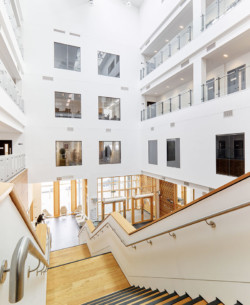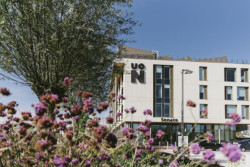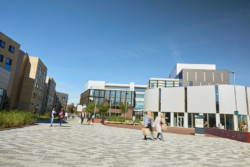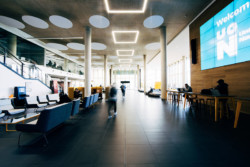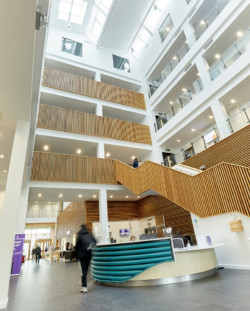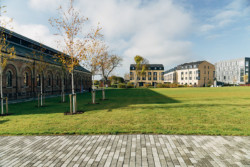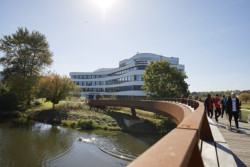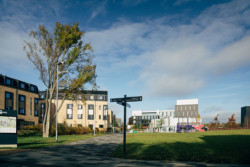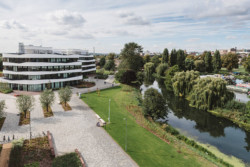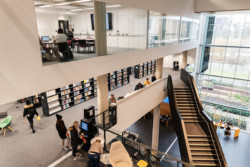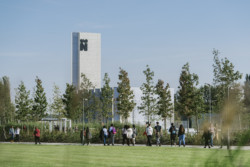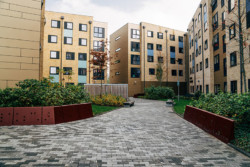
Anna Borley-Russell
Senior Lecturer in Leisure Management
Faculty of Business and Law
DiscoverLevel
Master'sPG
MADuration
Full Time: 1 Year
Starting
September
UK Fees 24/25
£8,250
International Fees 24/25
£16,995
Location
For questions regarding study and admissions please contact us:
Effective management of tourism development is essential for the future of destinations, communities and the travel and tourism industry. The term ‘over-tourism’ and its associated global impacts has highlighted a real and urgent need for managers who are capable of developing the tourism industry in a sustainable way.
The University of Northampton’s MA tourism development degree provides students with higher-level knowledge, skills and capabilities to pursue a specialist career in a broad range of areas in the tourism industry across the private, public and not-for-profit sectors.
Updated 30/05/2024
This masters in tourism development has been designed to contribute towards achieving the following United Nations Sustainable Development Goal: SDG15 of Life on Land.
The tourism development course will also prepare you for the practical, project-based, and customer focused characteristics of the tourism industry, drawing upon a variety of case studies and engaging you with industry experts.
The strategic use of events in both the public and private sectors will be examined, particularly their use as a catalyst for physical, economic and socio-cultural regeneration. You will have the option to choose to focus on developing your personal adaptability in cross-cultural (work) environments. You will begin the process of undergoing your dissertation through research methods and research supervision.
You will examine the vulnerability of destinations and the strategies and approaches needed by managers to develop and recover, particularly post-conflict, as well as examining a variety of concepts related to future directions for tourism practice and research. An area of individual research will be developed into a clearly defined and evidenced dissertation that demonstrates critical thinking and research at postgraduate level.
The first option is to undertake a one-year programme of study including a dissertation. You will gain the skills required to manage sustainable tourism businesses, alongside the specialisms of strategic destination management, tourism futures, crisis and post-conflict tourism management, the strategic use of events for urban destination management. You will additionally be able to choose routes such as digital marketing or managing across cultures.
This tourism development MA draws upon a variety of case studies and projects, letting you explore the global scope of tourism, the policies and strategies associated with successful management, the role the industry plays in international development, and the stakeholders involved in its development. The course places emphasis upon the micro-economic contribution of enterprise projects in supporting development and sustainability, in line with the University’s Changemaker ethos.
Guided by a dedicated subject specialist, you will collect, analyse and interpret a range of secondary and primary data, culminating in a 15-20,000 word dissertation.
The second option is to undertake a two-year programme of study incorporating an industry placement year.
This provides you with the same skills and holistic understanding of international tourism development, but builds on the first three semesters of academic content with the addition of a year in industry. The year in industry will develop your real world experience and you will undertake an applied research project that identifies and provides a response to an industry specific problem. You will be required to undertake a work-based learning module during Semester one which begins to prepare you for finding your placement.
Please note the modules shown here relate to the academic year 24/25. The modules relating to the academic year 25/26 will be available from June 2025.
You will be introduced to the main themes in destination and tourism development, enabling you to analyse the strategic and dynamic nature of international tourist destinations and issues facing destination managers. Modules in semester one will highlight the need to ensure long-term viability of destination resources through themes such as international sustainable development and futures studies. You will have the option to choose to focus on developing competency in digital marketing.
To be accepted onto this MA International Tourism Development degree, you will normally need to hold a recognised First or Second Class Honours degree from a UK university (or an international equivalent). We consider a wide range of first degree disciplines, which include travel, tourism, and international development. If English is not your first language, you will need to demonstrate that you meet the minimum English language requirement of IELTS 6.5 (or equivalent).
For more information on how to make an application, please visit our How to Apply page.
If you are an International student and would like information on making an application, please see our How to Apply page.
All International and EU students applying for a course with the University of Northampton must meet the following minimum English language requirements:
For information regarding English language requirements at the University, please see our IELTS page.
Fees quoted for this masters in International Tourism Development relate to study in the Academic Year 2024/25 only and may be subject to inflationary increases in future years.
*The placement fee amount will only be charged to you after you secure a placement and are enrolled on the work based project in year 2 of your course. You will not be charged this fee if you do not secure a work placement.
For information on the scholarships available to you, please see our scholarships page.
For more information about possible funding options, please visit our Fees and Funding pages.
Additional costs
There are no additional costs for this MA tourism course for students beginning their studies in September 2024. Should this change, applicants and students will be contacted by the university with details of the costs.
Fees quoted for this masters in masters in International Tourism Development relate to study in the Academic Year 23/24 only and may be subject to inflationary increases in future years.
*The placement fee amount will only be charged to you after you secure a placement and are enrolled on the work based project in year 2 of your course. You will not be charged this fee if you do not secure a work placement.
The MA International Tourism Development course emphasises a small group teaching and learning experience that combines a range of methods including taught and online workshops and active blended learning. Each 20 credit module accounts for 200 hours of learning; with 3 hours of scheduled contact per week per module, with a strong emphasis placed on directed and self-directed independent study.
All modules are taught within the academic calendar but the pattern of delivery may be flexible and will depend on the needs of the cohort.
Assessment methods will develop and enhance your skills and combine a range of traditional and modern communication methods.
Assessments include: Projects, debates, reports, presentations, essays, student-led seminars, e-portfolios, conference papers and production of digital content such as websites.
The industry placement enables you to develop your skills and knowledge in a real-world work environment, whilst completing an applied research project. This will give you an advantage over the competition for jobs and scholarships after you graduate and could be a good starting point for setting up your own consultancy business. Your placement will need to be appropriate to your level of study and you should also be paid for this work.
We will support you in finding and securing a suitable placement opportunity, however it must be noted that placements are highly competitive and there is no guarantee of a placement offer being made by an employer. If you are unable or unwilling to progress with an industry placement, for whatever reason, you will have the option to transfer onto our Dissertation and Research Methods module in order to gain the required credits to complete your programme of study.
Senior Lecturer in Leisure Management
Faculty of Business and Law
DiscoverSenior Lecturer in Tourism Management
Faculty of Business and Law
DiscoverSenior Lecturer in Tourism Management
Faculty of Business and Law
DiscoverSenior Lecturer in Tourism Management & Marketing
Faculty of Business and Law
DiscoverSenior Lecturer in Events Management
Faculty of Business and Law
DiscoverIf you are interested in pursuing a specialist career in destination management, sustainable tourism management or international development, then studying the International Tourism Development MA is an ideal progression for you. University of Northamptongraduates have gone on to work within development organisations, NGOs, aid organisations, post conflict and disaster charities, as well as public and private sector tourism organisations.
Our graduate discount scheme is open to graduates of the University of Northampton who enrol on a full master’s programme with us. Qualifying students will receive 20% discount on the full tuition fee for their Master’s course.
As an MA International Tourism Development degree student, you will have access to on-campus facilities, study areas, and services. These facilities should help provide you with the surroundings and support you need to complete your master’s degree studies.

This course is designed to support your aspirations to be the next generation of international hotel manager.

This course is designed to enable holders of HND/FdA Travel and Tourism Management qualifications to gain a full honours degree in one year.
